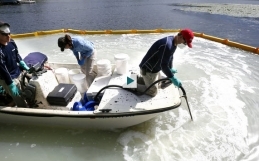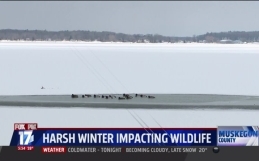Practical/Environmental Consequences
Of NPDES Permits for Pesticides
Pesticides serve an important role in protecting the Nation’s public health, waterways, forests and other resources. Over the 39 years the law has been in effect, , EPA never required a National Pollutant Discharge Elimination System (NPDES) permit for the application of Federal Insecticide, Fungicide, and Rodenticide Act (FIFRA) registered pesticides. EPA is being mandated to treat FIFRA-registered pesticides used for their approved purpose as “waste,” even when applied under conditions that EPA has found to prevent “unreasonable adverse effects on the environment.”
Practical Consequences
• EPA’s own analysis suggests that the NPDES permits program for pesticides will result the single greatest expansion of the program in its history, covering approximately 5.6 million covered pesticides applications per year by 365,000 applicators.
• Those affected include state agencies, city and county municipalities, mosquito control districts, water districts, pesticide applicators, farmers, ranchers, forest managers, scientists and others.
• The majority of aquatic weed control treatments are performed by small businesses with fewer than 15 employees. Even with special considerations in the permit for small businesses, the costs and liabilities associated with EPA permit scheme to small businesses are significant.
• Many of these small businesses will not only struggle to cope with these costs but will face legal exposure to activists who want to eliminate all pesticides. (Applicators face fines of up to $37,500 per day per violation, plus attorney’s fees.)
Environmental Consequences
• The National Center for Diseases officially recognizes the following as a partial list of mosquito-borne diseases – Eastern Equine Encephalitis, Japanese Encephalitis, La Crosse Encephalitis, St. Louis Encephalitis, West Nile Virus, Western Equine Encephalitis, Dengue Fever, Malaria, Rift Valley Fever and Yellow Fever. Inadequate control of these pests threatens public health.
• EPA’s permit program poses the possibility of critical delays in emergency responses to insect and disease outbreaks and will divert resources from controlling environmental pests to litigation and administrative burdens.
• EPA’s permit scheme will result in a reduction in the use of forest pest control as a forest management tool, resulting in the acceleration of tree mortality and general decline in overall forest health.
• EPA’s permit scheme will reduce pesticide use and erect barriers for the control of pests, such as Gypsy Moth and Forest Tent Caterpillar. This may result in a higher incidence of preventable tree kills and defoliated landscapes.
See our post “The Truth About HR872” for further information – and PLEASE – Let your US Legislators know that you want to STOP EXPANSION OF THE EPA’s AUTHORITY – Pass HR872!


